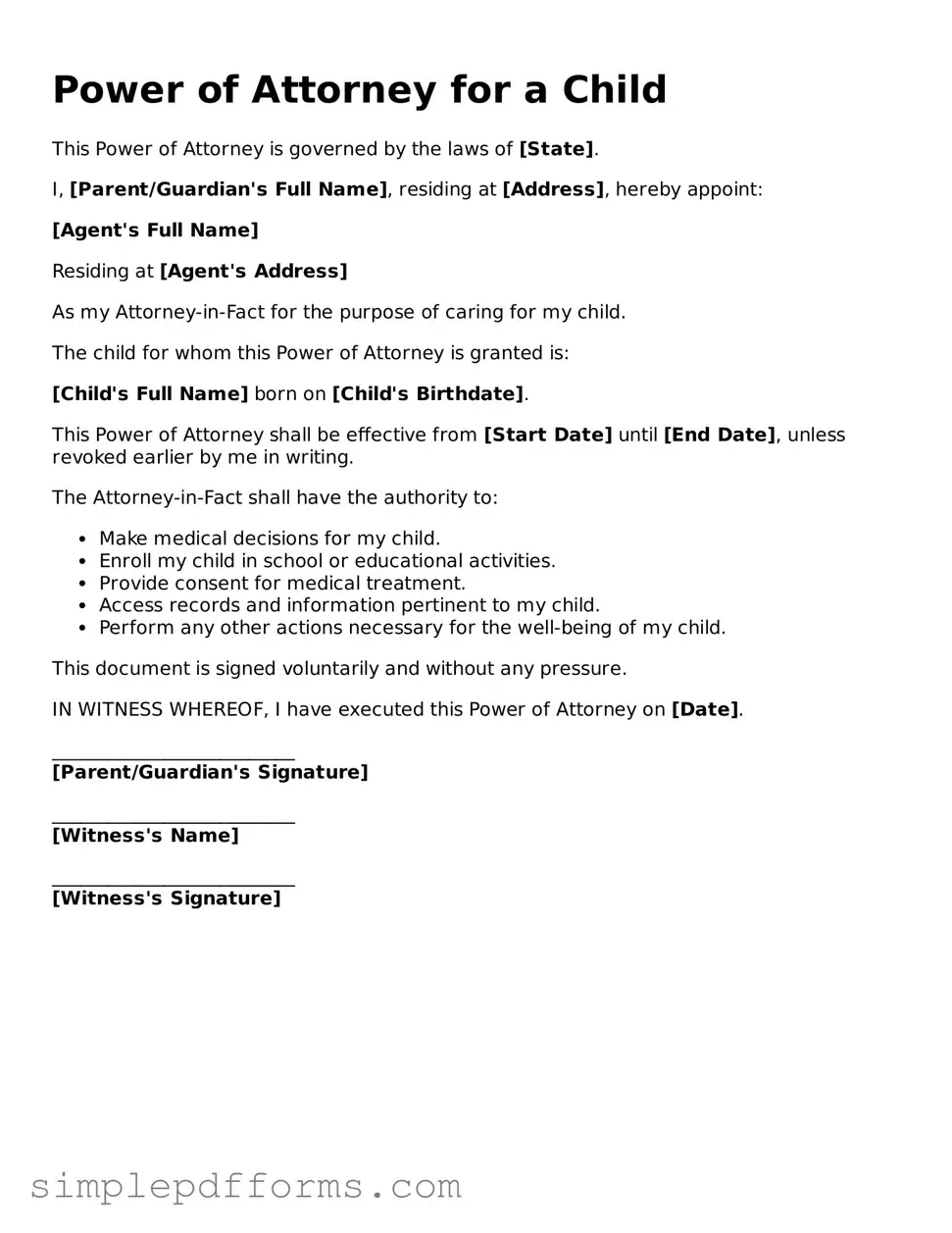Free Power of Attorney for a Child Form
The Power of Attorney for a Child form is a legal document that allows a parent or guardian to appoint another individual to make decisions on behalf of their child. This arrangement is often used when the parent is unavailable due to travel, illness, or other reasons. By using this form, parents can ensure that their child's needs are met and that someone they trust is in charge of their care.
Open Power of Attorney for a Child Editor Now

Free Power of Attorney for a Child Form
Open Power of Attorney for a Child Editor Now

Open Power of Attorney for a Child Editor Now
or
Get Power of Attorney for a Child PDF Form
Your form is waiting for completion
Complete Power of Attorney for a Child online in minutes with ease.